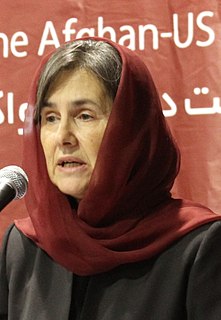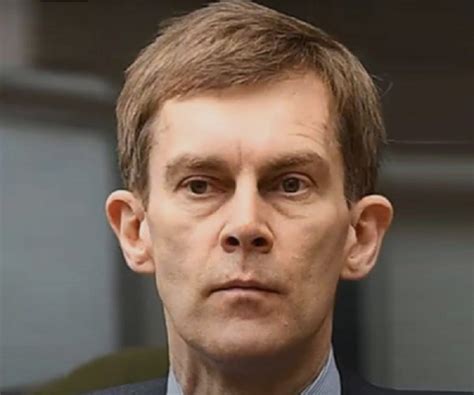A Quote by Richard Engel
The dangers of an Afghan collapse are many: Afghan deaths, a loss of American prestige, a loss of NATO prestige, a moral blow to U.S. troops and veterans, a Taliban resurgence, huge setbacks for women, and greater power for Pakistan and Pakistani extremists.
Related Quotes
The decision to rely heavily on high-altitude air power, target urban infrastructure and repeatedly attack heavily populated towns and villages has reflected a deliberate trade-off of the lives of American pilots and soldiers, not with those of their declared Taliban enemies, but with Afghan civilians... There will be no official two-minute silence for the Afghan dead, no newspaper obituaries or memorial services attended by the prime minister, as there were for the victims of the twin towers.
The president [Barack Obama] decided to leave more troops than he had originally planned in Afghanistan. We have a very cooperative government there, with Ashraf Ghani and his top - his top partner, Abdullah. And they are doing their very best. And the Afghan army is actually fighting. The Afghan army is taking heavy losses defending Afghan territory.
The draconian prohibitions of the Taliban years and the gains Afghan women have achieved since the Taliban government was overthrown in 2001 are now well known and often cited: Today, Afghans lucky enough to live in secure regions can go to school, women may work in offices, and the burqa is no longer mandatory.
The question is always how you get the number of troops needed. They do not have to be coalition forces. We also have to expand the training program for the Afghan National Army and the national police, in particular. and Defense Secretary Robert Gates has already announced support for a significant increase in the Afghan army.
My father's from Pakistan and he has been a secularist all his life. In the Pakistani context, there's no messing with religion. There's been a battle for the soul of Pakistan since 1947 and I have grown up without any illusions about the dangers of religious power in the context of a country like Pakistan.
Pakistan always seems to have a lot of political complexities and political challenges. But Pakistan is important for a number of reasons. Primarily, it is a nuclear power. And if, in fact, al Qaeda and Taliban, which are in Pakistan and causing a lot of tragedies and deaths in Pakistan - if they would ever somehow have real influence and control of that government, then we [world] really have a problem.
Here's how I became myself: mess, failure, mistakes, disappointments, and extensive reading; limbo, indecision, setbacks, addiction, public embarrassment, and endless conversations with my best women friends; the loss of people without whom I could not live, the loss of pets that left me reeling, dizzying betrayals but much greater loyalty, and overall, choosing as my motto William Blake's line that we are here to learn to endure the beams of love.

































